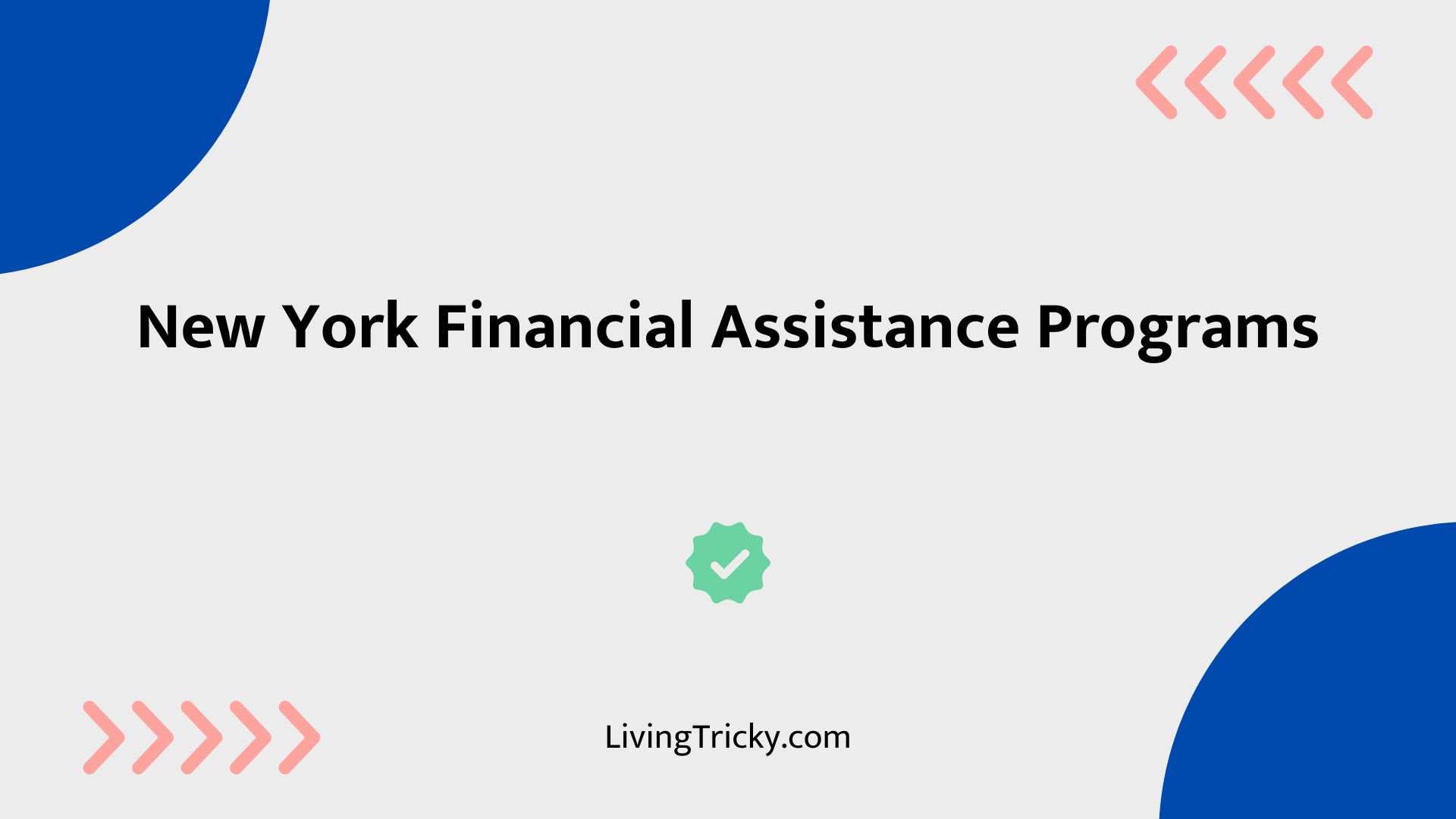Do you think living in New York has to break the bank? Think again. It’s true that the cost of living in the Empire State can be high, but there are financial assistance programs available to help low-income individuals and families get by.
From energy assistance to food on your table, these programs can provide a much-needed lifeline. But what exactly is available, and how can you access it?

Key Takeaways
- New York offers financial assistance for low-income households through programs like HEAP and Fair Fares NYC for energy bills and transportation costs.
- Food and nutrition resources, including the Food Bank for New York City and Federal programs like SNAP and WIC for healthy meals.
- Housing and utility assistance programs, such as the NYC Department of Homeless Services and Home Energy Assistance Program, provide support.
- Child and family care services, including Child Health Plus, WIC, and Temporary Assistance for Needy Families, offer financial assistance and support.
- Energy affordability programs, like Home Energy Assistance Program and financial assistance for heating, help eligible households with energy costs.
Financial Assistance for Low-Income Households
As a low-income household, you’re likely no stranger to the struggle to make ends meet.
Fortunately, there are programs designed to provide financial assistance.
The Home Energy Assistance Program (HEAP) helps eligible households with their energy bill, ensuring you don’t have to choose between heating and other essential social services.
You may also be eligible for Fair Fares NYC, offering a 50% discount on transportation costs.
These programs can help you receive the assistance you need to stay connected and meet your basic needs.
Food and Nutrition Resources
What’s standing between you and a nutritious meal?
In New York, financial assistance programs can help.
The Food Bank for New York City serves over 1.2 million people in need across the five boroughs.
You can also turn to the Food Bank of Central New York, which works to eliminate hunger through nutritious food distribution, education, and advocacy.
Federal resources like SNAP (Supplemental Nutrition Assistance Program) and WIC (Women, Infants, and Children) provide financial assistance to purchase healthy food.
Reach out to the Food Bank of Central New York at 1-800-444-1562 or 1-315-437-1899 to learn more.
Housing and Utility Assistance Programs
Having a roof over your head and access to basic utilities is essential for a decent standard of living. In New York City, you can access various housing and utility assistance programs.
The NYC Department of Homeless Services provides short-term shelter and housing assistance to eligible individuals and families. The Home Energy Assistance Program (HEAP) assists eligible households in meeting their home energy needs.
| Program | Eligibility | Benefits |
|---|---|---|
| HEAP | Low-income households | $36.77 to $173.03 for electric and gas services |
| LIHEAP | Low-income households | Assists with energy costs |
| NYC Department of Homeless Services | Homeless individuals and families | Short-term shelter and housing assistance |
| HEAP (Emergency) | Customers in danger of running out of fuel | Emergency benefits to prevent energy service shut-off |
Child and Family Care Services
Raising a family can be challenging, especially in a city like New York.
You may need help with child and family care services.
Fortunately, there are programs to support you:
- Child Health Plus provides affordable health care and mental health services for kids.
- The Women, Infants, and Children (WIC) program offers a nutrition program with financial assistance for healthy food.
- Temporary Assistance for Needy Families (TANF) provides grant funds for financial assistance and related support services.
- The Head Start Program supports children’s growth and development in a positive learning environment.
- Child Health Plus A (formerly Children’s Medicaid) or Child Health Plus B provides health insurance plans for kids based on family income.
Energy Affordability and Home Energy Assistance
As you navigate the challenges of living in New York, you may find it difficult to afford basic necessities like energy for your home.
Fortunately, the Energy Affordability Program and Home Energy Assistance Program can provide relief.
If you’re eligible, you can receive financial assistance to pay for heating your home through the Home Energy Assistance Program.
The Energy Affordability Program offers discounts on your monthly energy bills.
You can check your eligibility and apply online, meeting federal income guidelines similar to those for Unemployment Insurance.
Frequently Asked Questions
Who Qualifies for Cash Assistance in NY?
You may qualify for cash aid if you’re a low-income individual or family, struggling to meet basic needs due to financial insecurity, and you’re willing to participate in work activities for economic stability and homeless prevention.
What Is the Hardship Program in NY?
You’re facing financial hardship, seeking debt forgiveness, emergency funding, and loan modification, or requiring credit counseling to navigate a financial crisis. The Hardship Program offers a helping hand, providing discounts, payment deferment, and a chance to regain financial stability.
Who Is Eligible for SSP in NY?
You’re eligible for SSI in NY if you’re 65+, blind, or disabled, with limited income and resources, regardless of work history; this program supports senior citizens, low-income families, and individuals with mental health, substance abuse, or foster care issues.
What Kinds of Assistance Are Offered in NYC?
“When in Rome, do as the Romans do.” You can access various assistance in NYC, including Food Stamps, Medicaid Applications, Housing Subsidies, Child Care, Home Energy, Emergency Assistance, and Disability Benefits, to support your basic needs.
Conclusion
You’ve navigated the complex web of New York’s financial assistance like a seasoned navigator through treacherous waters. Now, you’re better equipped to secure a lifeline of support. Remember, these programs are the safety nets that can catch you when you’re falling, providing a crucial layer of defense against the harsh realities of poverty.